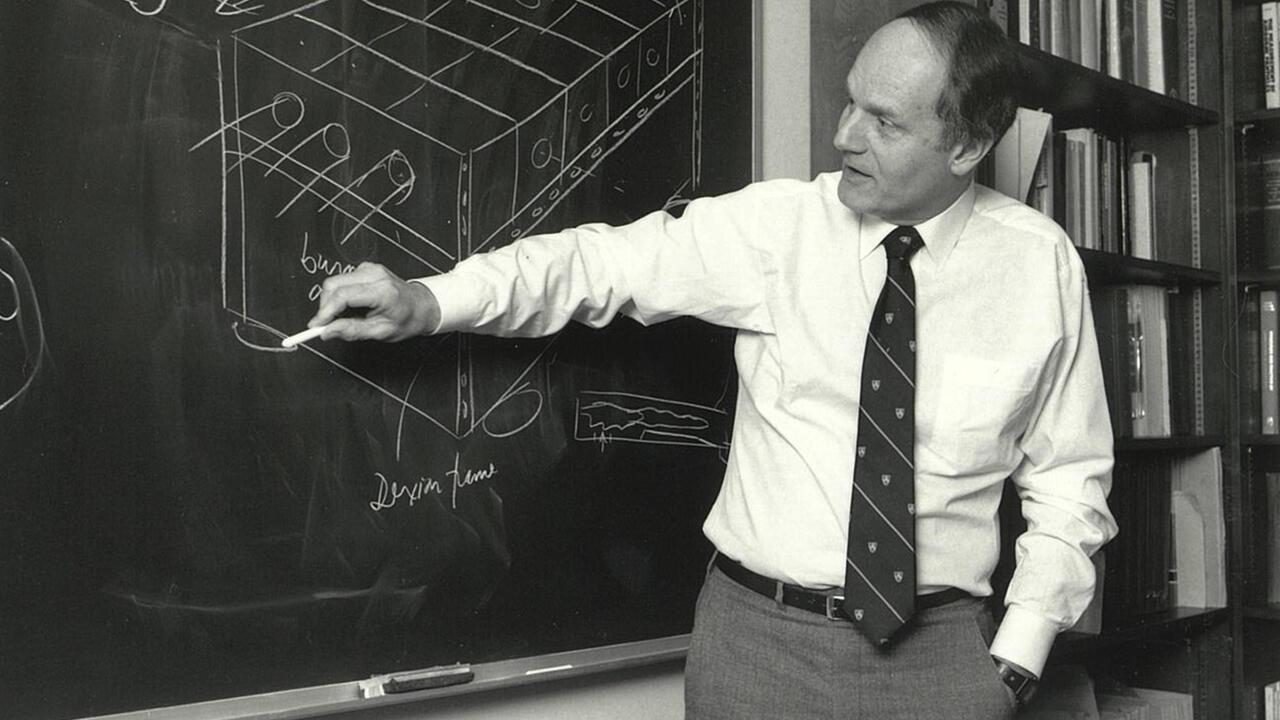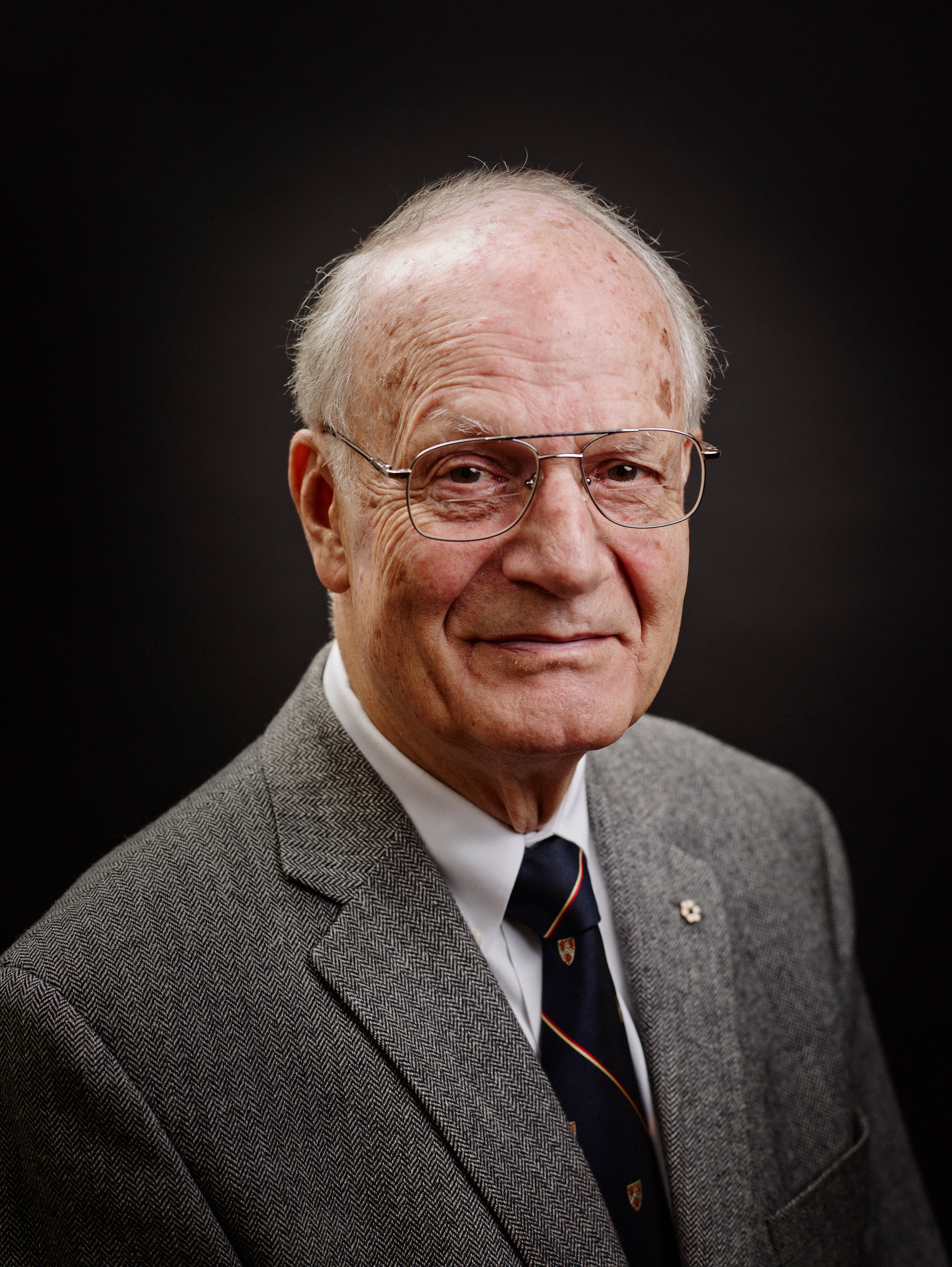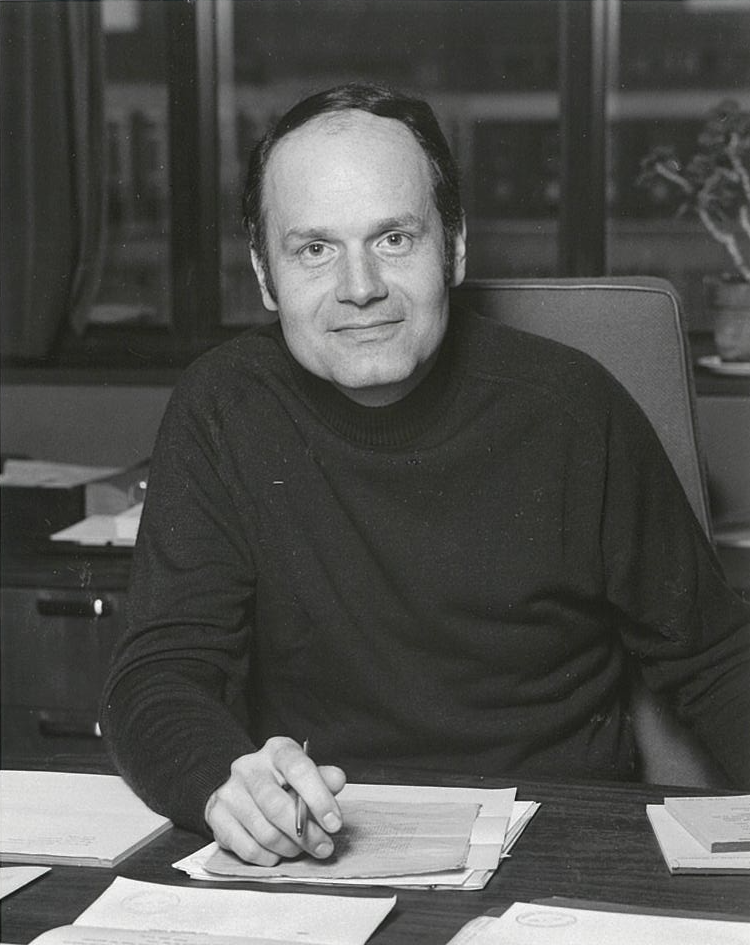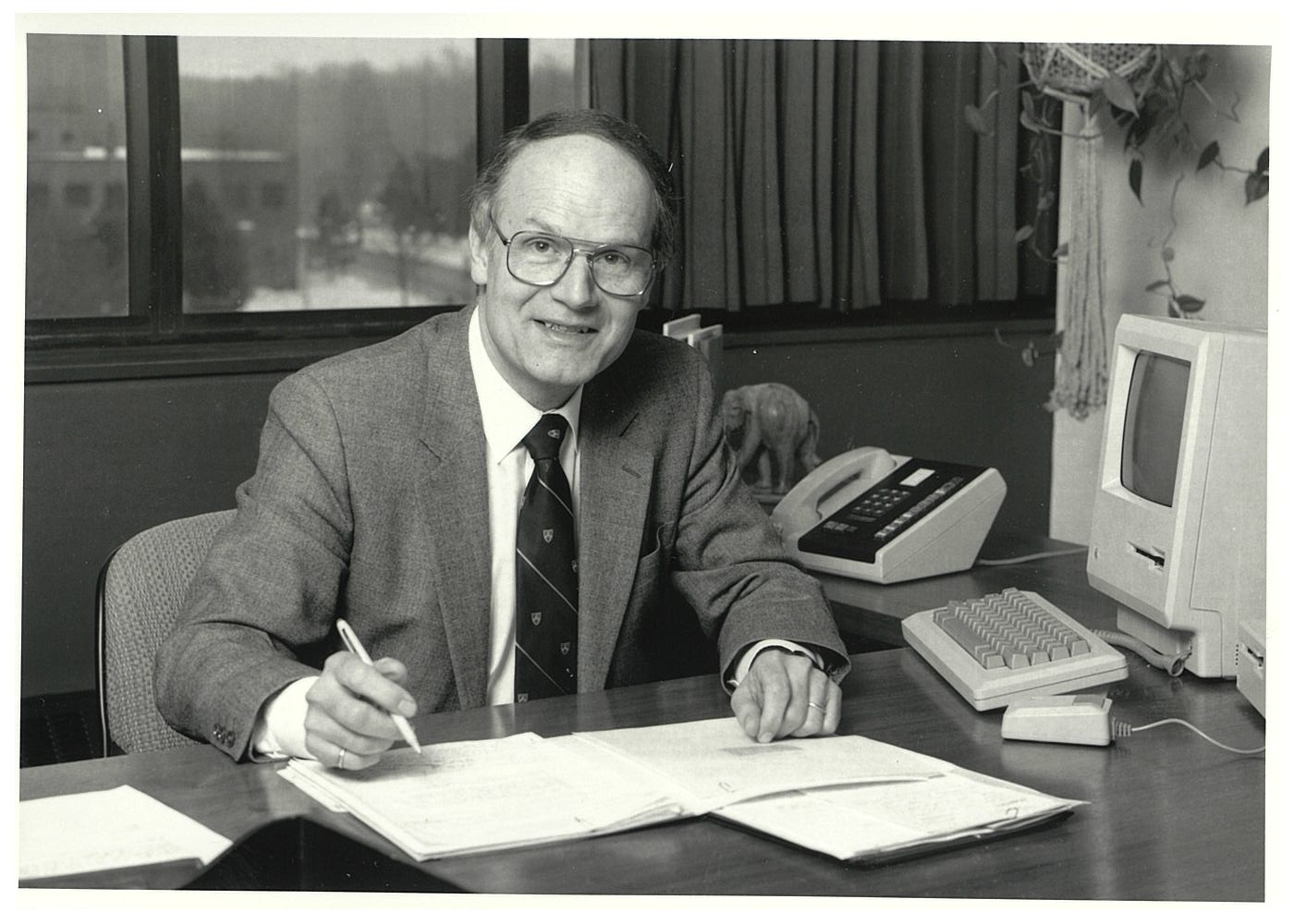
Remembering Tom Brzustowski, Waterloo’s first provost
For Professor Tom Brzustowski, Waterloo’s vice-president, academic for 12 years, running the University was more than rocket science

For Professor Tom Brzustowski, Waterloo’s vice-president, academic for 12 years, running the University was more than rocket science
By Brandon Sweet University Communications
Thomas Bzrustowski
> University of Waterloo's first provost
> Professor in the Department of Mechanical Engineering
Thomas Brzustowski, a former member of the Faculty of Engineering and Provost Emeritus, passed away on Friday, June 19.
Born in Warsaw, Poland in 1937, Brzustowski came to Canada in 1948 and became a naturalized Canadian citizen in 1954. In 1957 he worked in the Thermodynamics section of Avro Aircraft, moving to the Combustion section of Orenda Engines in 1958, both in Malton, Ontario, home of the Avro Arrow.
Brzustowski graduated with a BASc in Engineering Physics from the University of Toronto in 1958, and a Master’s and PhD in Aeronautical Engineering from Princeton in 1960 and 1963, respectively. His research areas included thermodynamics and combustion, rocket propulsion, celestial mechanics, and spectroscopy.
Brzustowski joined the University of Waterloo’s Department of Mechanical Engineering in September 1962 as an assistant professor. In September 1964 he was appointed Associate Professor, becoming a full Professor in September 1966. He served as Chair of Mechanical Engineering from 1967 to 1970, and as Associate Dean, Graduate Studies from 1971 to 1974.
Brzustowski served on a number of key committees and governance bodies at the University, including the committee that drafted the University of Waterloo Act in 1972 and the task force that drafted the University’s first policy covering its computing facilities. He chaired a special Senate committee in 1967 and 1968 that effectively reorganized the University’s approach to graduate studies. He also served on the University’s Senate and Board of Governors.

Tom Brzustowski at his desk in Needles Hall circa 1975
In 1975 he was appointed the University’s Vice-President, Academic, succeeding Howard Petch, who had departed to serve as President of the University of Victoria. From September to December 1976, he was named Acting President of the University. As vice-president, academic, Brzustowski chaired the University’s long-range planning committee, which set the guidelines for the institution’s growth and development over a ten-year period. During this time, he also worked to established the University’s Distinguished Teacher Awards, which are still awarded today.
In June 1987, Brzustowski’s portfolio was expanded to include new duties as the University’s first provost, in effect becoming the University’s chief operating officer as well as its senior academic administrator.
Not long after receiving the provostial title, Brzustowski departed from Waterloo to serve as deputy minister in the Government of Ontario from 1987 to 1995.
He was appointed President of the Natural Sciences and Engineering Research Council (NSERC) in October 1995, and reappointed in 2000, retiring in 2005. After his retirement from NSERC, Brzustowski returned to the University of Waterloo as a senior advisor to the Institute for Quantum Computing (IQC) for a three-year term. Following his term as advisor, he continued to serve as a member and Chair of IQC’s board of directors. Check out a number of video interviews he recorded while a member of the IQC board.
It was a consciously innovative environment … The University was filled with people just out of graduate school who had ideas about how to make the University better for other graduate students, combined with senior academics who were dissatisfied with their previous universities and came to Waterloo determined to do things better. Professors were expected to develop new curricula and were free to make mistakes, and if we didn’t we were not really doing our job.
During his academic career he published more than 60 research papers and undergraduate textbooks on thermodynamics. He authored a number of publications on Canadian innovation and prosperity, including The Way Ahead: Meeting Canadas Productivity Challenge and Innovation in Canada: Why We Need More and What We Must Do to Get It.
“There is a wonderful symmetry to my time with Tom Brzustowski,” writes University historian Ken McLaughlin. “The new Vice-President Academic, replacing the sometimes-stern Howard Petch, visited all of the academic departments, including the sometimes-threatened Department of History. In walked the young V-P Academic challenging us to a lively discussion of Alvin Toffler’s ground-breaking new book, Future Shock. What a contrast to his predecessor. When Tom returned to Waterloo as Chair of the Board of the Institute for Quantum Computing, I walked into his office, only to be challenged again by a heated debate about his new book, Innovation in Canada: Why We Need More and What We Must Do to Get It. A restless intellect seeking to push the boundaries is my lasting impression of Tom.”
Brzustowski held honorary doctorates from institutions including Alberta, Concordia, école Polytechnique de Montréal, Guelph, McMaster, Ottawa, Royal Military College of Canada, Ryerson, and Waterloo.
He was an Officer of the Order of Canada and a fellow of the Canadian Academy of Engineering, the Engineering Institute of Canada and of the Royal Society of Canada. In 2006 he received the Ontario Professional Engineering Association’s Gold Medal for making “significant and lasting contributions to research and development in Canadian engineering.”

Tom Brzustowski at his desk in Needles Hall circa 1985

Read more
Upside Robotics secures new funding to accelerate the future of sustainable farming

Read more
Here are the people and events behind some of this year’s most compelling Waterloo stories

Read more
A winter holiday message from President Vivek Goel
The University of Waterloo acknowledges that much of our work takes place on the traditional territory of the Neutral, Anishinaabeg, and Haudenosaunee peoples. Our main campus is situated on the Haldimand Tract, the land granted to the Six Nations that includes six miles on each side of the Grand River. Our active work toward reconciliation takes place across our campuses through research, learning, teaching, and community building, and is co-ordinated within the Office of Indigenous Relations.